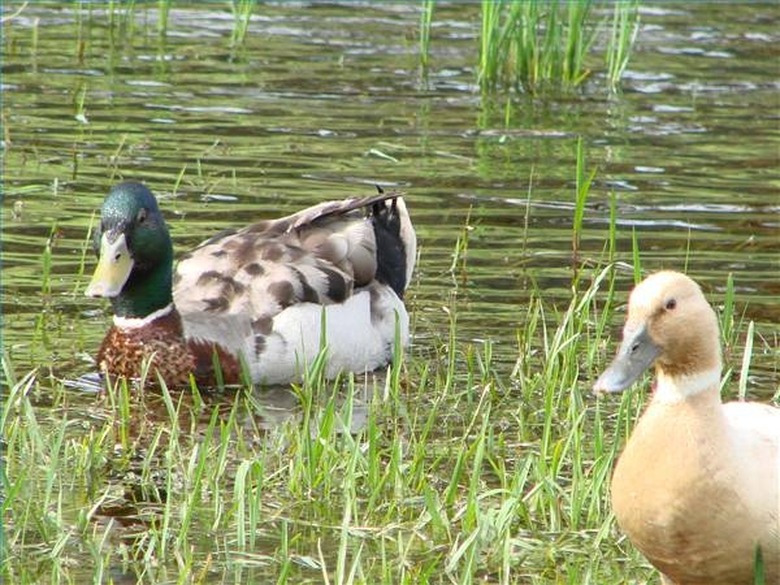How Do Ducks Communicate?
Types of Ducks in the United States
Types of Ducks in the United States
Ducks refer to a variety of wild and domesticated waterfowl that belongs to the family Anatidae and subfamily Anatinae. Ducks are not only the biggest group of waterfowl, but also the most diverse. Typically, ducks possess flat, wide bills. Their legs are short with webbed feet. Within the duck classification, there are sub-groupings: Perching, Diving, and Dabbling ducks. In the United States, there is a greater percentage of Dabbling or Diving ducks. Ducks communicate in a variety of ways that include both verbal and visual communication.
Verbal Communication of Ducks
Verbal Communication of Ducks
The well-known quack sound of ducks belongs to the female Mallard duck, and can be heard from miles away. The quack, also known as the "decrescendo call" or "hail call," is used to contact other ducks, particularly when a mother calls her young. In addition to the quacking, Mallards use many other calls to communicate among their kind. Besides quacking, ducks make a wide range of vocalizations that include whistles, coos, grunts and yodels, which vary from soft to very loud calls.
Visual Communication of Ducks
Visual Communication of Ducks
Due to ducks' heavy weight relative to their wing area (or high wing loading), their visual communications are usually performed at or close to the water or land surface, as opposed to the sky. Communication while in flight is restricted to short flights, which are close to the water, and include contact calls which aid in communicating to the flock as they traverse between landings.
Courtship Communication of Ducks
Courtship Communication of Ducks
Common observation of duck communications can be seen in Mallard courtship, which occurs in the fall, winter and spring seasons. Male Mallards may attempt to get a female's attention by shaking their heads and tails, with their breasts held high and necks stretched. Groups of at least four males may swim around the females while whistling and squirting water at them. Female Mallards, on the other hand, often create demonstrations to incite males to attack other ducks. In doing this, the female is able to observe the male's potential as a mate. Just before mating, the male and female Mallard ducks can be seen floating face-to-face, while pumping their heads up and down. Other Dabbling or Puddle ducks possess similar courtship communication as the Mallard Duck, such as the Black Duck. Despite similarities in communication among the types of ducks, there are significant communication differences between the duck subfamilies due to adaptation to their environments.
Cite This Article
MLA
Contributor, . "How Do Ducks Communicate?" sciencing.com, https://www.sciencing.com/ducks-communicate-4574402/. 22 November 2019.
APA
Contributor, . (2019, November 22). How Do Ducks Communicate?. sciencing.com. Retrieved from https://www.sciencing.com/ducks-communicate-4574402/
Chicago
Contributor, . How Do Ducks Communicate? last modified March 24, 2022. https://www.sciencing.com/ducks-communicate-4574402/
